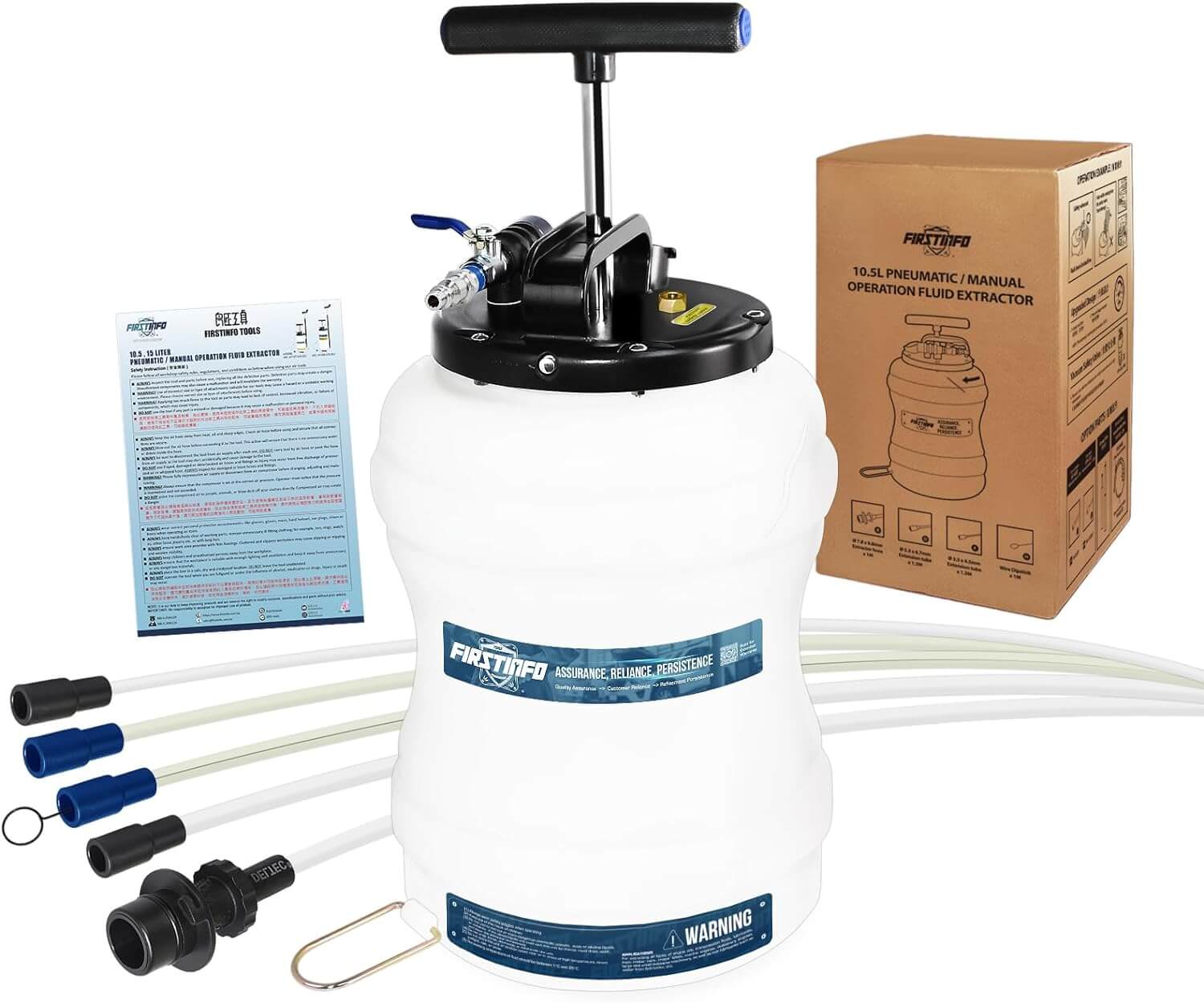The Pros And Cons Of Different Automotive Oil Types.
When it comes to keeping your car running smoothly, choosing the right automotive oil is crucial. With so many options available, it’s important to understand the pros and cons of each type.
From conventional oils to synthetic blends and full synthetic oils, each one offers its own set of benefits and drawbacks. In this article, we will explore the advantages and disadvantages of different automotive oil types, helping you make an informed decision for your beloved vehicle.
So, let’s dive into the world of automotive oils together!
Conventional Oil
Pros
Conventional oil, also known as mineral oil, is the most commonly used type of motor oil. One of the main advantages of conventional oil is its affordability.
It is generally less expensive compared to other types of oil, making it a popular choice for budget-conscious car owners. Additionally, conventional oil is widely available, making it easily accessible for anyone who needs to change their oil.
Another benefit of conventional oil is its compatibility with older vehicles. If you own a classic car or a vehicle with a high mileage, conventional oil is often recommended as it provides adequate lubrication for these types of engines. It helps protect the engine against wear and tear, ensuring a smooth and efficient operation.
Cons
On the downside, conventional oil tends to break down and oxidize more quickly than synthetic oils. This means that it may require more frequent oil changes to maintain optimal engine performance. Additionally, conventional oil does not provide the same level of protection against extreme temperatures and high-stress conditions as synthetic oils do. This can result in decreased engine performance and potential engine damage in severe cases.
Synthetic Oil
Pros
Synthetic oil is known for its superior performance and longevity compared to conventional oil. One of the key advantages of synthetic oil is its ability to withstand extreme temperatures. It remains stable at high temperatures, protecting the engine from thermal breakdown and reducing the risk of engine failure.
Another benefit of synthetic oil is its exceptional lubrication properties. It flows more smoothly throughout the engine, reducing friction and wear on engine parts. This results in improved fuel efficiency and extended engine life. Synthetic oil also contains fewer impurities and additives, which helps prevent engine sludge and deposits, keeping the engine cleaner and better protected.
Cons
One of the primary drawbacks of synthetic oil is its higher cost. Synthetic oil is generally more expensive compared to conventional oil. However, many car owners believe that the long-term benefits of synthetic oil outweigh the initial expense. Additionally, some older vehicles or high-mileage engines may not necessarily require the advanced properties of synthetic oil, making it an unnecessary investment.
Another potential disadvantage of synthetic oil is its compatibility with certain gaskets and seals. Some older vehicles may have gaskets and seals that are not designed to handle the synthetic oil’s unique chemical composition. This can lead to leaks and other engine issues if the gaskets and seals are not replaced or upgraded to be compatible with synthetic oil.
High-Mileage Oil
Pros
High-mileage oil is specifically formulated to cater to the needs of older vehicles with high mileage, typically above 75,000 miles. One of the main advantages of high-mileage oil is its ability to rejuvenate aging engine seals and gaskets. It contains additives that can soften and condition the seals, helping to prevent oil leaks and reduce oil consumption.
Another benefit of high-mileage oil is its enhanced protection against engine wear. It often contains additives that help reduce friction and promote smoother engine operation, reducing the risk of wear on engine parts. High-mileage oil also provides increased resistance to oil breakdown, ensuring that the engine stays properly lubricated for longer periods.
Cons
Despite its benefits, high-mileage oil may not be suitable for all vehicles, especially those with low mileage or newer engines. The unique additives in high-mileage oil may not be necessary for engines that are still in good condition and have not yet experienced significant wear. In these cases, using high-mileage oil may be unnecessary and could even lead to reduced engine performance.
Additionally, high-mileage oil tends to be more expensive than conventional oil, which can be a factor to consider for cost-conscious vehicle owners. Regular oil changes with high-mileage oil can add up over time, so it’s important to weigh the potential benefits against the added expense.
Full Synthetic Oil
Pros
Full synthetic oil offers the highest level of performance and protection for modern engines. One of the major advantages of full synthetic oil is its exceptional resistance to extreme temperatures. It remains stable in both high and low temperatures, ensuring optimal engine performance regardless of the conditions. This makes it a popular choice for drivers who live in areas with extreme weather or engage in high-performance driving.
Another benefit of full synthetic oil is its superior lubrication properties. The molecules in synthetic oil are engineered to reduce friction and wear on engine parts, resulting in improved fuel efficiency and prolonged engine life. Full synthetic oil also provides excellent protection against engine deposits and sludge buildup, keeping the engine clean and running smoothly.
Cons
The primary downside of full synthetic oil is its higher cost compared to other types of oil. Full synthetic oil is typically more expensive than conventional oil and synthetic blends. However, many vehicle owners consider it a worthwhile investment due to the extended oil change intervals and the overall enhanced engine protection it provides.
Additionally, older or high-mileage engines may not fully benefit from the advanced properties of full synthetic oil. These engines may not require the same level of protection or lubrication, making full synthetic oil unnecessary and potentially wasteful.
Premium Conventional Oil
Pros
Premium conventional oil is a step up from standard conventional oil. It offers enhanced performance and protection, making it a popular choice for car owners who want an upgrade without the higher cost of synthetic oils. One of the advantages of premium conventional oil is its improved resistance to oxidation and thermal breakdown. This helps maintain oil stability and ensures consistent engine performance over longer periods.
Additionally, premium conventional oil often contains higher-quality additives that provide better protection against wear and deposits compared to standard conventional oil. This results in improved engine cleanliness and reduced engine wear, ultimately extending the engine’s lifespan.
Cons
Despite its advantages, premium conventional oil may still fall short in certain areas compared to full synthetic oil. It may not provide the same level of engine protection under extreme temperatures or extreme driving conditions. Premium conventional oil can also break down more quickly than synthetic oils, necessitating more frequent oil changes to maintain optimal engine performance.
Moreover, the cost of premium conventional oil may be higher than standard conventional oil but still lower than full synthetic oil. Car owners need to consider their specific vehicle’s requirements and their desired level of protection when deciding whether to invest in premium conventional oil.
Synthetic Blend Oil
Pros
Synthetic blend oil, also known as semi-synthetic oil, offers a combination of benefits from both conventional and synthetic oils. One of the main advantages of synthetic blend oil is its improved performance over conventional oil. It provides better engine protection and lubrication compared to conventional oil, minimizing friction and wear on engine parts.
Another benefit of synthetic blend oil is its reduced cost compared to full synthetic oil. While still more expensive than conventional oil, synthetic blend oil provides some of the advantages of synthetic oil at a more affordable price point. It strikes a good balance between performance and cost-effectiveness.
Cons
One potential drawback of synthetic blend oil is that it may not offer the same level of engine protection as full synthetic oil. It may not withstand extreme temperatures as well or provide the same level of resistance against engine deposits and sludge buildup. Car owners need to evaluate their specific driving conditions and engine requirements to determine if synthetic blend oil is suitable for their vehicle.
Additionally, some car manufacturers may not recommend the use of synthetic blend oil in their engines. It’s important to consult the vehicle’s owner’s manual or seek advice from a trusted mechanic before using synthetic blend oil to ensure compatibility and optimal engine performance.
Diesel Engine Oil
Pros
Diesel engine oil is specifically formulated to meet the unique needs of diesel engines. One of the main advantages of diesel engine oil is its high viscosity index, which means it maintains its viscosity across a wide temperature range. This ensures proper lubrication and protection of diesel engine components, even in extreme temperatures.
Another benefit of diesel engine oil is its strong detergent properties. Diesel engines tend to produce higher amounts of soot and by-products, which can lead to engine deposits and sludge buildup. Diesel engine oil contains additives that help keep the engine clean and minimize the risk of harmful deposits.
Cons
One potential disadvantage of diesel engine oil is its higher cost compared to conventional gasoline engine oil. This is due to the specific formulation required to meet the demands of diesel engines. The higher cost may be a consideration for budget-conscious diesel vehicle owners.
Additionally, using diesel engine oil in gasoline engines or vice versa can lead to potential engine damage. It’s crucial to use the correct type of oil specified for the engine to ensure optimal performance and avoid any compatibility issues.
Low-Viscosity Oil
Pros
Low-viscosity oil, also known as thin oil, offers several advantages for modern engine designs. One of the main benefits of low-viscosity oil is its ability to flow quickly and reach critical engine parts faster on cold starts. This reduces engine wear and improves fuel efficiency during warm-up periods.
Another advantage of low-viscosity oil is its ability to reduce friction and improve engine performance. The thinner oil allows for smoother and more efficient operation of engine components, resulting in better fuel economy and reduced wear on moving parts.
Cons
One potential drawback of low-viscosity oil is its decreased film strength compared to higher-viscosity oils. This may lead to reduced protection against engine wear, particularly in high-stress conditions or extreme temperatures. It’s important to consider the specific engine requirements and operating conditions before deciding to use low-viscosity oil.
Moreover, older engines or those with significant wear may not benefit as much from low-viscosity oil as newer engines. These engines may require oils with higher viscosities to ensure sufficient lubrication and protection of engine components.
Bio-Based Oil
Pros
Bio-based oil, also known as bio-oil or environmentally friendly oil, is made from renewable resources such as plants or animal fats. One of the key advantages of bio-based oil is its reduced environmental impact. It produces fewer greenhouse gas emissions during production, and it is biodegradable, minimizing its impact on the environment when disposed of correctly.
Additionally, bio-based oil can provide comparable performance to conventional oil in terms of lubrication and engine protection. It meets the same industry standards as conventional oils, making it suitable for a wide range of vehicles. Using bio-based oil can be a sustainable and eco-friendly choice without sacrificing engine performance.
Cons
One potential downside of bio-based oil is its higher cost compared to conventional oil. The production process and sourcing of renewable resources can contribute to the increased price. Car owners need to consider their budget and their commitment to environmental sustainability before opting for bio-based oil.
Furthermore, bio-based oil may not be suitable for all engines, especially those with unique performance requirements or specific compatibility needs. It’s important to consult the vehicle’s manufacturer or seek advice from a professional to ensure bio-based oil is compatible with the engine and meets the necessary specifications.
Recycled Oil
Pros
Recycled oil, also known as re-refined oil, is produced by refining used motor oil to remove impurities and restore its lubricating properties. One of the main advantages of recycled oil is its environmental benefit. By using recycled oil, you contribute to reducing the demand for crude oil and minimizing the amount of used motor oil that ends up in landfills or waterways.
Recycled oil also provides comparable performance to conventional oil in terms of engine protection and lubrication. The refining process removes contaminants and restores the oil’s viscosity and lubricating properties, ensuring proper engine function and longevity.
Cons
One potential drawback of recycled oil is the perception that it may be of lower quality or less reliable compared to new oil. However, reputable re-refiners adhere to stringent industry standards to ensure that the recycled oil meets the necessary specifications. Additionally, recycled oil may not be as widely available as conventional oil, and the cost may vary depending on the region.
It’s essential to choose recycled oil from a trusted source and ensure that it meets the necessary certifications and specifications for your vehicle’s engine. Consulting with a professional or referring to the vehicle’s owner’s manual can help determine if recycled oil is a suitable choice.
In conclusion, choosing the right automotive oil for your vehicle involves considering a variety of factors. Each oil type offers its own set of advantages and disadvantages, designed to cater to specific engine needs and driving conditions.
Understanding the pros and cons of different oil types can help you make an informed decision and ensure optimal engine performance, longevity, and protection. Whether you opt for conventional oil for its affordability or full synthetic oil for its superior performance, the key is to select the oil that best aligns with your vehicle’s requirements and your own priorities.


